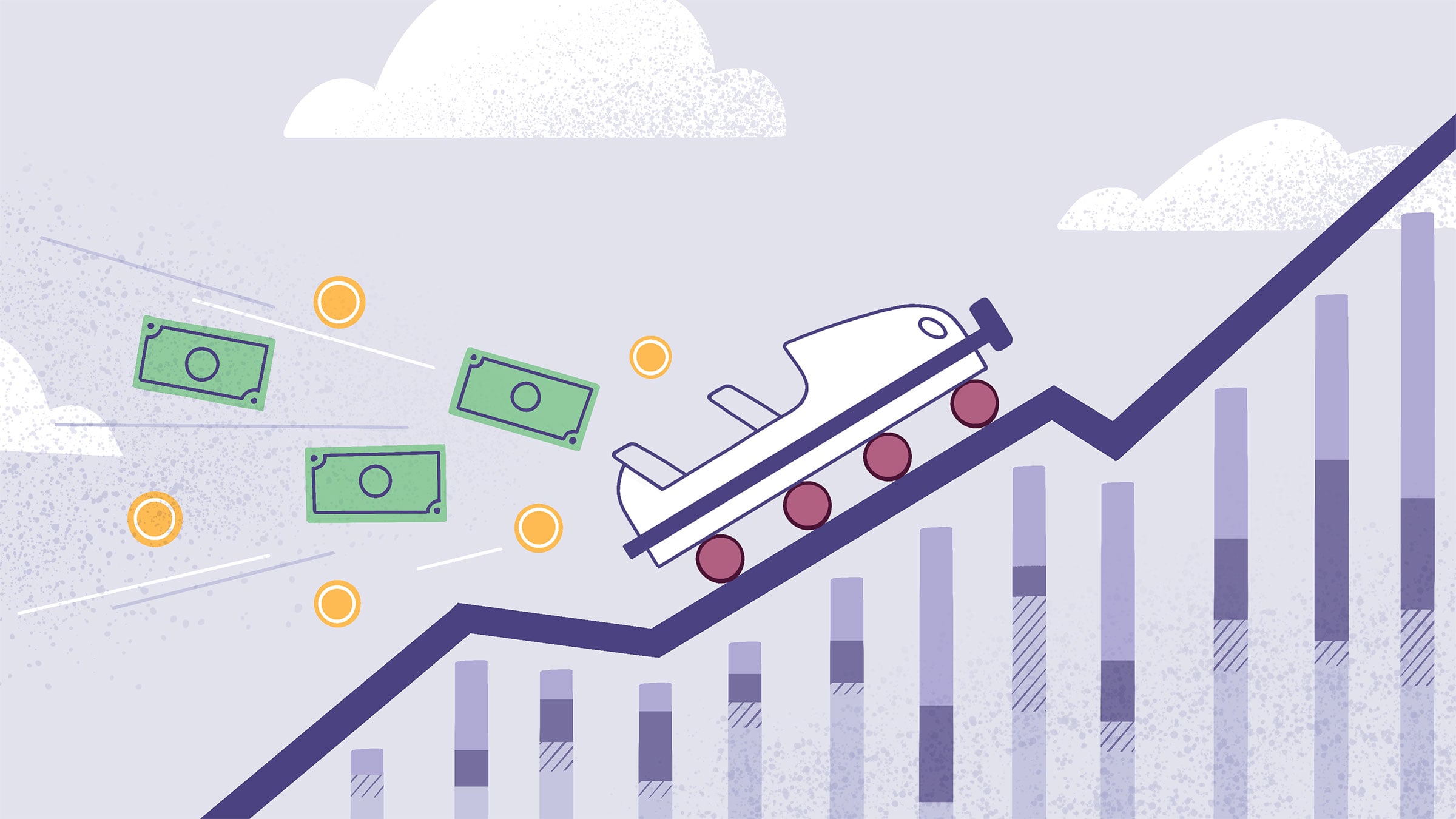If you missed the 2022 buzzword of the year, you might have been sleeping under a rock. Countless news broadcasts, social media posts, articles and economists are discussing that which must not be named: inflation.
Having survived the Trump era, a global pandemic, record unemployment rates, vaccinations, working (and in some cases schooling) at home, inflation is the new hot topic.
To better understand the implications for everyday people and businesses, we first need to understand what inflation is, how it happens, and what we can do about it. Perhaps most importantly, how can business owners get ahead of it?
What is inflation?
Inflation, in general terms, means the act of inflating or expanding. In and of itself, economic growth doesn’t sound too bad. However, in economic terms, inflation specifically refers to quickly rising prices for goods and services within a short period.
Federal Reserve policymakers generally believe that an acceptable inflation rate is just under 2% per year. Consumers don’t feel a big impact on their wallets at that rate. However, according to the United States Bureau of Labor Statistics, as of August 2022, the consumer price index (CPI) has increased 8.3% over the past year.
Today, the same dollar in your wallet has less purchasing power than it did one year ago due to higher prices. That’s a change most consumers feel, especially when shopping for necessities like groceries, gas, housing, and medical care.
How does inflation affect the everyday person?
If wages keep pace with inflation, then it doesn’t have much impact — at least for people still in the workforce. But unfortunately, wages haven’t kept up with inflation.
According to the Society of Human Resources (SHRM), salaries in the U.S. are projected to grow by just over 4% — less than half the annual inflation rate.
So for most people — especially retirees and others on a fixed income — increased inflation results in increased housing costs, fewer groceries, less gas, and potentially no disposable income.
Why did inflation happen in 2022?
It’s tempting to blame high inflation on a single factor — politicians and oil companies are particularly appealing scapegoats. But there are more factors at play.
Consumer demand
Many consumers are on a spending spree after spending most of 2020 and 2021 at home binging on Netflix. Now that vaccines are readily available, many feel increasingly confident going to the stores again and are demanding more goods and services.
Stimulus checks and other pandemic-related aid add support to households’ buying power. The resulting increase in spending did an excellent job stimulating the economy, but more consumer demand led to higher prices.
Supply chain problems
Increased demand might not be too bad on its own, but the U.S. economy is still experiencing significant supply chain problems stemming from the COVID-19 pandemic. This drives up the cost of raw materials and production, reducing the supply of goods and pushing up consumer prices.
Job market
The great resignation and a competitive labor market have forced many businesses to offer more money to hire or retain employees. This news is great for workers, but companies often pass these higher costs on to consumers.
The war in Ukraine
Russia and Ukraine are important suppliers of many commodities worldwide, including oil, titanium, palladium, wheat, and fertilizer.
Russia’s invasion of Ukraine disrupted exports from Ukraine, and many countries imposed sanctions on exports from Russia. That’s why many economists, including Deloitte’s, forecast inflation to “remain a prominent part of the business landscape well into 2023.”
What does inflation mean for business?
For businesses, a higher inflation rate means price increases for goods and services, raw materials, rent, office supplies, and labor. It also means rising interest rates on business loans and lines of credit since the Federal Reserve Bank raises interest rates to slow down the economy and establish price stability. This, in turn, results in less spending, reduced investments, and higher rates of unemployment.
Essential businesses with low competition and high loyalty are less affected by rising prices, but any business has to compensate for rising costs by raising prices, cutting costs, or restructuring.
How should a business prepare?
Neither economists nor meteorologists can forecast the future with 100% accuracy, so business leaders should prepare for a range of scenarios. However, the following actions can improve performance whether inflation is here for the long run or eases off in the coming months.
- Shore up your capital structure. Rebalance portfolios and lock in today’s cost of capital in anticipation of interest rate variability.
- Proactively address supply chain disruption. Focus on building a diversified supply chain with enough slack to ride out uncertainty.
- Build for continuity. Invest in systems that enable smooth operations in periods of high labor turnover (e.g., training capabilities, automation).
- Consider smart hedges. Make strategic decisions about where to hedge (e.g., pre-buying raw materials) and consider areas most susceptible to destabilization.
- Build a strategic market-sensing function. Develop internal capabilities to monitor how the future could unfold to trigger the deployment of contingent strategies and hedges.
- Review customer contracts. Review contracts to ensure you can adjust pricing as needed, passing your higher costs through to customers with minimal notice.
If possible, start the process of increasing prices immediately — even if it’s just by 1% or 2% per year. Some businesses avoid price changes, only to be forced to push a big price increase on customers all at once when it becomes unavoidable. If you’re thoughtful about how you announce and implement price increases, you may have an opportunity to increase your market share at your competitors’ expense.
If you’re still not sure exactly how to forecast and prepare for inflation, contact us. We’re happy to help you learn about inflation’s effects and make plans to work around or exploit them to improve your market position.
